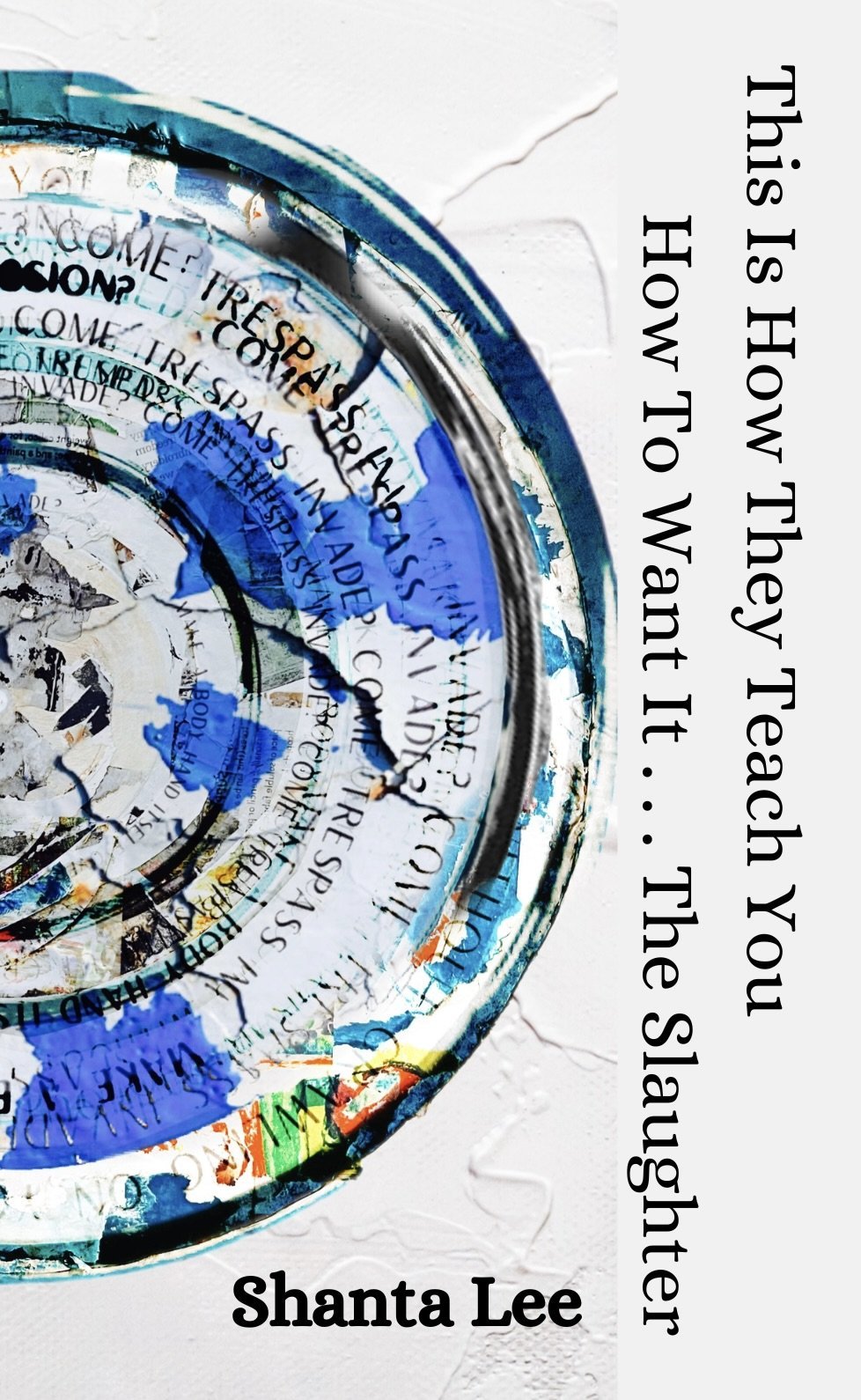Purchase
This is How They Teach You How to Want It . . . The Slaughter.
Cover art: Trespass, Megan Merchant
Praise for This Is How They Teach You How to Want It . . . The Slaughter:
What does it mean to be hunted, to be ravaged, to be water they crave to put the fire out in their throats? In her book This is How They Teach You How to Want It . . . The Slaughter, Shanta Lee explores the mercurial world of monsters and prey, of destruction and culpability from the perspective of the hungry / The never fully fed / the . . . come here // closer. In a nightmare world, who can be trusted? Shanta urges the reader to see that predators will maim you with different names / . . . make you use your own hands / to climb onto the butcher’s board. Through deft allusions, precise horror and questions that echo our worst fears, Shanta provides a surreal map of questions and images for making sense of devastation, survivorship and forging ahead in a treacherous world. After all, Some hunger is a taught taut thing / Some hunger demands questions.
—Joan Kwon Glass, author of Daughter of Three Gone Kingdoms (Perugia Press, 2024)
In powerful, incantatory verses, Shanta Lee’s new book, This is How They Teach You How to Want It . . . The Slaughter, brings the metaphor of sacred/profane hunting to bear on the Protean violence of human transformation. This is a book that enacts rather than describes: it casts a spell aiming to release the chthonic power of the living while animating the ethereal aura of the dead. Lee doesn’t just explode boundaries, she sings cadences which bind together the carnivorous and the vulnerable: “the kill who eats, not swallowed.” Lee is an enchanter of reconfiguration, re-solving, by hypnotic utterance, dichotomies between life and death, hunger and consumption, power and helplessness, oppression and liberty. “You hear my bones,” the poet proclaims and whispers. This is a book to hear in our bones too.
—Philip Brady, author of The Elsewhere: Selected Poems and Poetics (Broadstone, 2021)
Insatiable, provocative, and raw, Shanta Lee’s This is How They Teach You How to Want It . . . The Slaughter is a memorable, haunting chapbook exploring female desire and wilderness where each poem hungers and hums off the page.
These are poems which recognize how women and people of color are often asked to be complicit in the systems of power that exploit and tyrannize them. And rather than comply with this all-too-American cultural narrative, Lee’s poems flip the script on white, male patriarchal subjecthood and BIPOC, female objectification. From the stories of the Big Bad Wolf and Little Red Riding Hood to Mr. Big (“He who arrives, not on horseback but his black town car // He who kills with wallet / with his penis / with his withholding”) and his toxic misogyny towards Carrie and Thomas Jefferson and the brick-lined room he created in his Monticello mansion’s basement for his lover and slave Sally Hemings, these poems interrogate and detonate the systematically unequal narratives of heteronormative white romance we are fed as American children.
Rather as the chapbook continues, the object of the white male gaze (i.e. the woman, the person of color, the animal who seeks to be untamed) who has been historically and ritualistically diminished and otherized begins to gain a new kind of voice and self-recognition: “I am the horror, the hagged, the beauty.” In these poems, the woman of color, who has been rendered supplicant very well knows: “I’ve been had.” And this self-knowledge creates a drive in the poems that is daring and subversive.
That is, as This is How They Teach You How to Want It . . . The Slaughter progresses, the object of the male colonizer’s gaze refuses to be slaughtered, stilled, caught or rendered “dead-alive.” As she struggles, the reader, the voyeur of her narrative, becomes implicated in her struggle, too. Through the very act of reading, the speaker and objects of these poems become “the wild woman,” the one who refuses to be “maim[ed] . . . with different names,” the one who embraces the complications of her desire and dis-ease, and in doing so, the one who, like Kali, invites herself and the reader to embrace all that is female, feral, and ferocious.
—Rita Banerjee, author of Echo in Four Beats (Finishing Line Press, 2018)
Shanta Lee is an award winning artist who works in different mediums as a photographer, curator, writer across genres, and a public intellectual. She is the author of the poetry collection, GHETTOCLAUSTROPHOBIA: Dreamin of Mama While Trying to Speak Woman in Woke Tongues, winner of the 2020 Diode Editions full-length book prize and the 2021 Vermont Book Award. Her collection Black Metamorphoses (Etruscan Press, 2023) was a finalist for the Hudson prize, shortlisted for the Cowles Poetry Book Prize, and longlisted for the Idaho poetry prize. This poetry collection has also inspired a multimedia exhibition at the Newport Art Museum, See Me, Read Me, Hear Me: An Immersion of Black Metamorphoses. Dark Goddess: An Exploration of the Sacred Feminine, her latest exhibition, has been featured at the Southern Vermont Arts Center and the Fleming Museum of Art. The latest iteration of this exhibition, Dark Goddess: Sacroprofanity (Volume III of the Dark Goddess series) will be at the Bennington Museum in 2024.
Lee shares: “I am a practitioner of entanglement. I connect and engage with a collection of areas. Exploring the connections that extend beyond the categories or boxes we prescribe to places, things, and ourselves is what excites me the most. Can you limit your life to a ‘one thing’? As humans, do we truly have only a singular purpose? Or are we intermeshed with things, energies, peoples, places in ways that defy our attempt at confined labels and definitions?”
To learn more about her work, visit: Shantalee.com.



